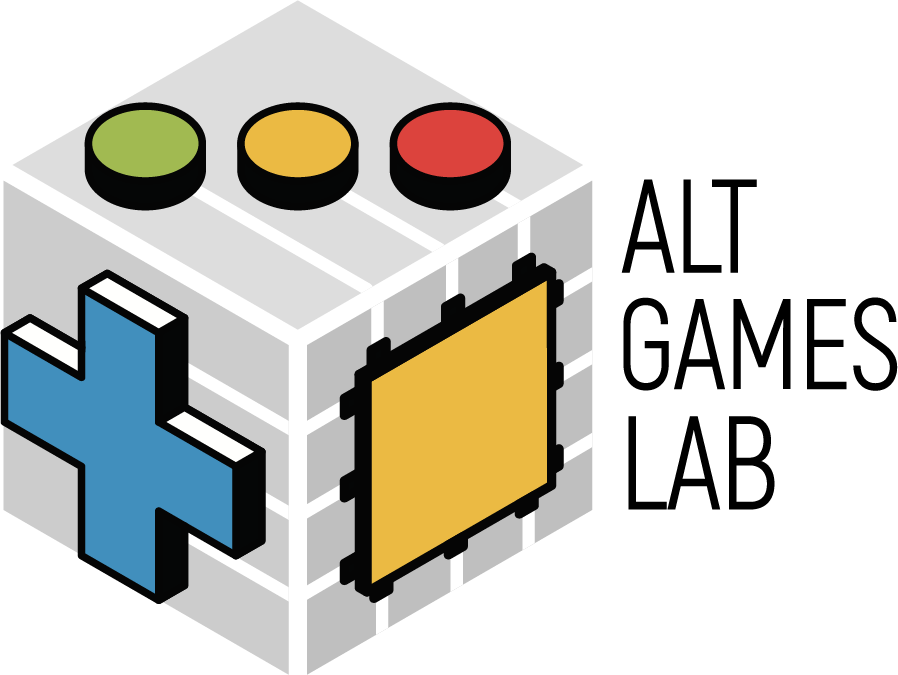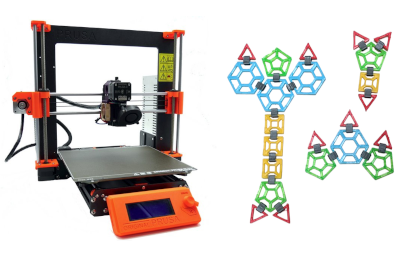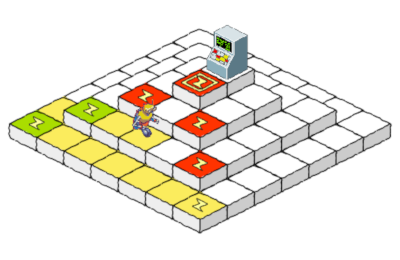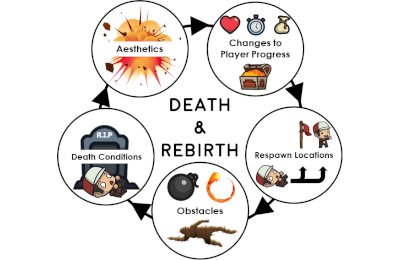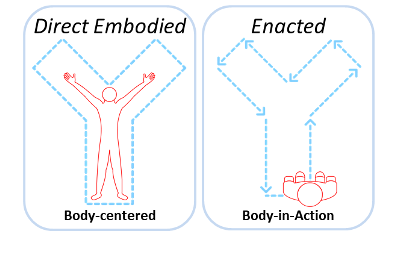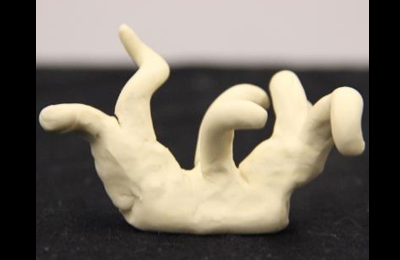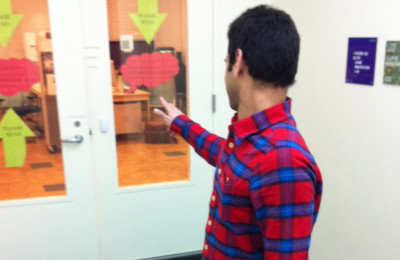Research
I am the director of the ALT Games Lab at the University of California, Santa Cruz
Current Projects
Past Projects
Publications
Book Chapters
- In Press: Samuel Shields and Edward Melcer. (2022). “Papers, Please”. In Learning, Education & Games, Volume 4: 50 Games for Inclusion, Equity, and Justice. ETC Press.
- Katelyn Grasse, Edward F. Melcer, Max Kreminski, Nick Junius, James Ryan, and Noah Wardrip-Fruin. (2021). “Academical: A Choice-Based Interactive Storytelling Game for Enhancing Moral Reasoning, Knowledge, and Attitudes in Responsible Conduct of Research”. In Games and Narrative: Theory and Practice. Springer.
- Edward F. Melcer. (2021). “Games & Playable Media (GAME) 202: Foundations of Alternative Controller Games”. In Teaching the Game: An interdisciplinary collection of game course syllabi. ETC Press.
- Edward F. Melcer and Katherine Isbister. (2021). “Learning with the Body: A Design Framework for Embodied Learning Games and Simulations”. In Software Engineering Perspectives in Computer Game Development. CRC Press, Taylor & Francis Group.
- Edward F. Melcer and Marjorie Ann M. Cuerdo. (2020). “Death & Rebirth in Platformer Games”. In Game User Experience and Player-Centered Design. Springer.
Peer Reviewed Conference and Journal Publications
- In Press: Oleksandra Keehl and Edward Melcer. (2022). “Zen Hanzi: A Game for Raising Hanzi Component Awareness”. In Proceedings of the 17th international conference on the Foundations of Digital Games. FDG ’22.
- In Press: Katherine Picho, Ethan Osborne, Fatyma Camacho, Aaja Ouellette, Mason Woodford, and Edward F. Melcer. (2022). “Resilient IN: Design of an Interactive Narrative HRV-Biofeedback Game to Develop Stereotype and Social Identity Threat Resilience”. In Proceedings of the 2022 Joint Conference on Serious Games.
- In Press: Samuel Shields, Ross Mawhorter, Edward F. Melcer, and Michael Mateas. (2022). “Searching for Balanced 2D Brawler Games: Successes and Failures of Automated Evaluation”. In Proceedings of the Eighteenth AAAI Conference on Artificial Intelligence and Interactive Digital Entertainment (AIIDE-22). AAAI.
- In Press: Cara A.Liebert, Edward F. Melcer, Oleksandra Keehl, Hyrum Eddington, Amber W. Trickey, Melissa Lee, Jason Tsai, Fatyma Camacho, Sylvia Bereknyei Merrell, James R.Korndorffer Jr., and Dana T.Lin. (2022). “Validity Evidence for ENTRUST as an Assessment of Surgical Decision-Making for the Inguinal Hernia Entrustable Professional Activity (EPA)”. In Journal of Surgical Education.
- Best Paper Honorable Mention Award: Dominic Kao, Rabindra Ratan, Christos Mousas, Amogh Joshi, and Edward F. Melcer. (2022). “Audio Matters Too: How Audial Avatar Customization Enhances Visual Avatar Customization in Educational Games”. In Proceedings of the 2022 CHI Conference on Human Factors in Computing Systems. CHI ’22, New Orleans, LA, USA. ACM.
- Katelyn Grasse, Michael Mateas, Noah Wardrip-Fruin, and Edward F. Melcer. (2022). “Using Self-Determination Theory to Explore Enjoyment of Educational Interactive Narrative Games: A Case Study of Academical”. In Frontiers in Virtual Reality. 3:847120.
- Rhea Sharma, Edward F. Melcer, and Dominic Kao. (2022). “Exploring Relevance and Meaningfulness from Unexpected Learning Experiences in Commercial Video Games”. In Proceedings of DiGRA `22.
- In Press: Antonio Bucchiarone, Kendra M. L. Cooper, Dayi Lin, Edward F. Melcer, and Kelvin Sung. (2022). “Proposal for the 6th International ICSE Workshop on Games and Software Engineering: Engineering fun, inspiration, and motivation – GAS 2022”. In Proceedings of the 44th International Conference on Software Engineering. ICSE ’22.
- Best Paper Honorable Mention Award: Janelynn Camingue, Elin Carstensdottir, and Edward F. Melcer. (2021). “What is a Visual Novel?”. In Proceedings of the ACM on Human-Computer Interaction, 5(CHI PLAY).
- Oleksandra Keehl and Edward F. Melcer. (2021). “Music to my ears: developing kanji stroke knowledge through an educational music game”. In Multimodal Technologies and Interaction, 5(12):83.
- Katelyn M. Grasse, Marjorie Ann M. Cuerdo, andEdward F. Melcer. (2021). “Mad Mixologist: Exploring How Object Placement in Tangible Play Spaces Affects Collaborative Interaction Strategies”. In Proceedings of the 2021 IEEE Conference on Games (CoG). IEEE.
- Marjorie Ann M. Cuerdo, Anika Mahajan, and Edward F. Melcer. (2021). “Die-r Consequences: Player Experience and the Design of Failure through Respawning Mechanics”. In Proceedings of the 2021 IEEE Conference on Games (CoG). IEEE.
- Katelyn Grasse, Edward F. Melcer, Max Kreminski, Nick Junius, and Noah Wardrip-Fruin. (2021). “Improving Undergraduate Attitudes Towards Responsible Conduct of Research Through an Interactive Storytelling Game”. In Extended Abstracts of the 2021 CHI Conference on Human Factors in Computing Systems. CHI ’21, Yokohama, Japan. ACM.
- Katelyn Grasse and Edward F. Melcer. (2020). “Generation: A Novel Fabrication Game for Simulating Evolution and Natural Selection”. In Proceedings of the Annual Symposium on Computer-Human Interaction in Play. CHI-Play '20, Ottawa, Canada. ACM.
- John Diez and Edward F. Melcer. (2020). “Cookie Mania: A Serious Game for Teaching Internet Cookies to High School and College Students”. In Proceedings of Joint International Conference on Entertainment Computing and Serious Games. Springer, Cham.
- Exceptional Paper Award: Edward F. Melcer, Katelyn Grasse, James Ryan, Nick Junius, Max Kreminski, Dietrich Squinkifer, Brent Hill, and Noah Wardrip-Fruin. (2020). “Getting Academical: A Choice-Based Interactive Storytelling Game for Teaching Responsible Conduct of Research”. In Proceedings of the 15th international conference on the Foundations of Digital Games. FDG ’20, Malta. ACM.
- Janelynn Camingue, Edward F. Melcer, and Elin Carstensdottir. (2020). “A (Visual) Novel Route to Learning: A Taxonomy of Educational Visual Novels”. In Proceedings of the 15th international conference on the Foundations of Digital Games. FDG ’20, Malta. ACM.
- Dominic Kao, Christos Mousas, Alejandra J. Magana, D. Fox Harrell, Rabindra Ratan, Edward F. Melcer, Brett Sherrick, Paul Parsons, and Dmitri A. Gusev. (2020). “Hack.VR: A Programming Game in Virtual Reality”. In Proceedings of the 15th international conference on the Foundations of Digital Games. FDG ’20, Malta. ACM.
- Marjorie Ann M. Cuerdo and Edward F. Melcer. (2020). “"I'll Be Back": A Taxonomy of Death and Rebirth in Platformer Video Games”. In Extended Abstracts of the 2020 CHI Conference on Human Factors in Computing Systems. CHI ’20, Hawaii, USA. ACM.
- Edward F. Melcer, James Ryan, Nick Junius, Max Kreminski, Dietrich Squinkifer, Brent Hill, and Noah Wardrip-Fruin. (2020). “Teaching Responsible Conduct of Research Through an Interactive Storytelling Game”. In Extended Abstracts of the 2020 CHI Conference on Human Factors in Computing Systems. CHI ’20, Hawaii, USA. ACM.
- Oleksandra Keehl and Edward F. Melcer. (2019). “Radical tunes: exploring the impact of music on memorization of stroke order in logographic writing systems”. In Proceedings of the 14th International Conference on the Foundations of Digital Games. ACM.
- Max Kreminski, Ben Samuel, Edward F. Melcer, and Noah Wardrip-Fruin. (2019). “Evaluating AI-Based Games Through Retellings”. In Proceedings of the Fifteenth AAAI Conference on Artificial Intelligence and Interactive Digital Entertainment (AIIDE-19). AAAI.
- Kaitlyn Kliewer, Edward F. Melcer, and Branko Glisic. (2019). “Co-Word Analysis of the Structural Health Monitoring Field”. In Proceedings of the 12th International Workshop on Structural Health Monitoring.
- Erin R. Ottmar, Edward F. Melcer, Dor Abrahamson, Mitchell J. Nathan, Emily Fyfe, and Carmen Smith. (2018). “EMBODIED MATHEMATICAL IMAGINATION AND COGNITION (EMIC) WORKING GROUP”. In North American Chapter of the International Group for the Psychology of Mathematics Education (2018).
- Best Paper Honorable Mention Award: Edward F. Melcer and Katherine Isbister. (2018). “Bots & (Main)Frames: Exploring the Impact of Tangible Blocks and Collaborative Play in an Educational Programming Game”. In Proceedings of the 2018 CHI Conference on Human Factors in Computing Systems. CHI '18, Montréal, Canada. ACM.
- Katherine Isbister, Elena Marquez Segura, and Edward F. Melcer. (2018). “Social Affordances at Play: Game Design Toward Socio-Technical Innovation”. In Proceedings of the 2018 CHI Conference on Human Factors in Computing Systems. CHI '18, Montréal, Canada. ACM.
- Edward F. Melcer, Michael T. Astolfi, Mason Remaley, Adam Berenzweig, and Tudor Giurgica-Tiron. (2018). “CTRL-Labs: Hand Activity Estimation and Real-time Control from Neuromuscular Signals”. In Extended Abstracts of the 2018 CHI Conference on Human Factors in Computing Systems. CHI '18, Montréal, Canada. ACM.
- Truong-Huy Nguyen, Edward F. Melcer, Alessandro Canossa, Magy Seif El-Nasr, and Katherine Isbister. (2018). “Seagull: A Bird’s-Eye View of the Evolution of Technical Games Research”. In Entertainment computing, 26, 88-104.
- Kristina Höök, Baptiste Caramiaux, Cumhur Erkut, Jodi Forlizzi, Nassrin Hajinejad, Michael Haller, Caroline C. M. Hummels, Katherine Isbister, Martin Jonsson, George Khut, Lian Loke, Danielle Lottridge, Patrizia Marti, Edward F. Melcer, Florian Floyd Müller, Marianne Graves Petersen, Thecla Schiphorst, Elena Márquez Segura, Anna Ståhl, Dag Svanæs, Jakob Tholander, and Helena Tobiasson. (2018). “Embracing first-person perspectives in soma-based design”. In Informatics (Vol. 5, No. 1, p. 8). Multidisciplinary Digital Publishing Institute.
- Edward F. Melcer and Katherine Isbister. (2017). “Embodiment, Collaboration, and Challenge in Educational Programming Games: Exploring Use of Tangibles and Mouse”. In Proceedings of the 12th international conference on the Foundations of Digital Games. FDG ’17, Hyannis, MA. ACM.
- Edward F. Melcer and Katherine Isbister. (2017). “Toward Understanding Disciplinary Divides within Games Research”. In Proceedings of the 12th international conference on the Foundations of Digital Games. FDG ’17, Hyannis, MA. ACM.
- Edward F. Melcer, Victoria Hollis, and Katherine Isbister. (2017). “Tangibles vs. Mouse in Educational Programming Games: Influences on Enjoyment and Self-Beliefs”. In Extended Abstracts of the 35th Annual ACM Conference on Human Factors in Computing Systems. CHI '17, Denver, CO. ACM.
- Kate Compton, Edward F. Melcer, and Michael Mateas. (2017). "Generominos: Ideation Cards for Interactive Generativity". In Proceedings of the 13th Artificial Intelligence and Interactive Digital Entertainment Conference. AIIDE '17, Utah. ACM.
- Edward F. Melcer and Katherine Isbister. (2016). "Bridging the Physical Learning Divides: A Design Framework for Embodied Learning Games and Simulations". In Proceedings of the 1st International Joint Conference of DiGRA and FDG. DiGRA and FDG ‘16, Dundee, Scotland.
- Best Paper Honorable Mention Award in Late-Breaking Work Track: Edward F. Melcer and Katherine Isbister. (2016). "Bridging the Physical Divide: A Design Framework For Embodied Learning Games and Simulations". In Extended Abstracts of the 34th Annual ACM Conference on Human Factors in Computing Systems. CHI '16, San Jose, CA. ACM.
- Edward F. Melcer and Katherine Isbister. (2016). "Motion, Emotion, and Form: Exploring Affective Dimensions of Shape". In Extended Abstracts of the 34th Annual ACM Conference on Human Factors in Computing Systems. CHI '16, San Jose, CA. ACM.
- Best Paper Award in Game Studies Track: Edward F. Melcer, Truong-Huy Nguyen, Zhengxing Chen, Alessandro Canossa, Magy Seif El-Nasr, and Katherine Isbister. (2015). "Games Research Today: Analyzing the Academic Landscape 2000-2014". In Proceedings of the 10th international conference on the Foundations of Digital Games. FDG '15, Pacific Grove, CA.
- Oliver L. Haimson, Anne E. Bowser, Edward F. Melcer, and Elizabeth F. Churchill. (2015). "Online Inspiration and Exploration for Identity Reinvention". In Proceedings of 33rd Annual ACM Conference on Human Factors in Computing Systems. CHI '15, Republic of Korea, Seoul. ACM.
- Anne E. Bowser, Oliver L. Haimson, Edward F. Melcer, and Elizabeth F. Churchill. (2015). "On Vintage Values: The Experience of Secondhand Fashion Reacquisition". In Proceedings of 33rd Annual ACM Conference on Human Factors in Computing Systems. CHI '15, Republic of Korea, Seoul. ACM.
- Edward F. Melcer and Katherine Isbister. (2014). "Emotional space: understanding affective spatial dimensions of constructed embodied shapes". In Proceedings of the 2nd ACM symposium on Spatial user interaction. SUI '14, Honolulu, HI. ACM.
- Karlesky, M., Edward F. Melcer, and Katherine Isbister. (2013). "Open sesame: re-envisioning the design of a gesture-based access control system". In Extended Abstracts of 31st Annual ACM Conference on Human Factors in Computing Systems. CHI'13, Paris, France. ACM.
Doctoral Consortium Papers
- Edward F. Melcer. (2017). “Exploring the Effects of Physical Embodiment in a Puzzle-Based Educational Programming Game”. In Proceedings of the 11th ACM SIGCHI Conference on Creativity and Cognition. C&C '17, Singapore. ACM.
- Edward F. Melcer. (2017). "Moving to Learn: Exploring the Impact of Physical Embodiment in Educational Programming Games". In Extended Abstracts of the 35th Annual ACM Conference on Human Factors in Computing Systems. CHI '17, Denver, CO. ACM.
Workshop Papers
- Edward F. Melcer, and Katherine Isbister. (2016). "Bridging the Physical Divide: A Design Framework for Embodied Learning Systems". In Move to be Moved Workshop. CHI '16, San Jose, CA. N.p.
- Edward F. Melcer, and Katherine Isbister. (2014). "CSEI: The Constructive Sensual Evaluation Instrument". In Workshop on Tactile User Experience Evaluation Methods. CHI '14, Toronto, ON, Canada. N.p.
